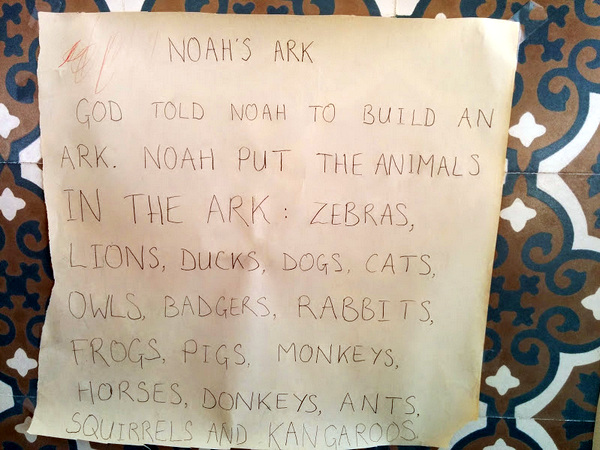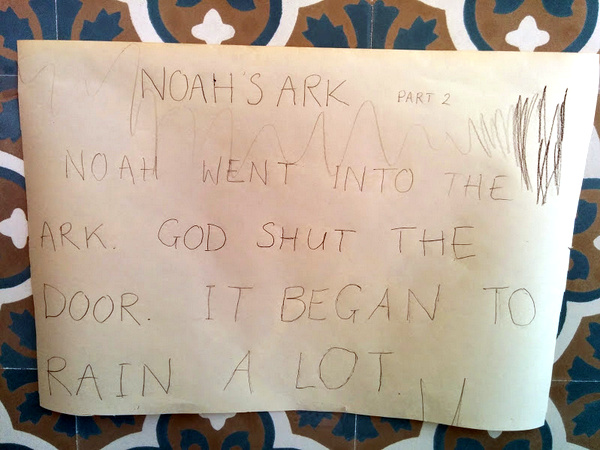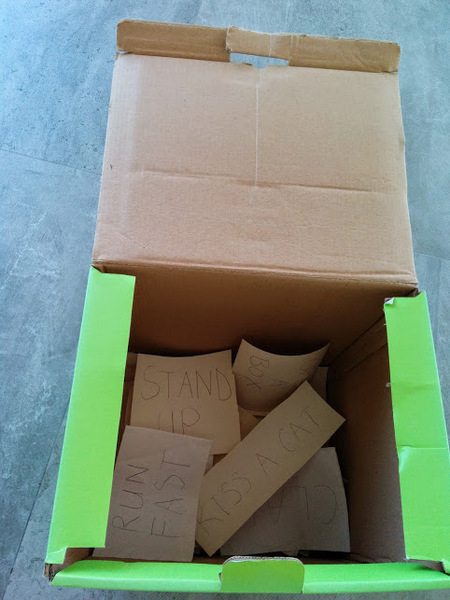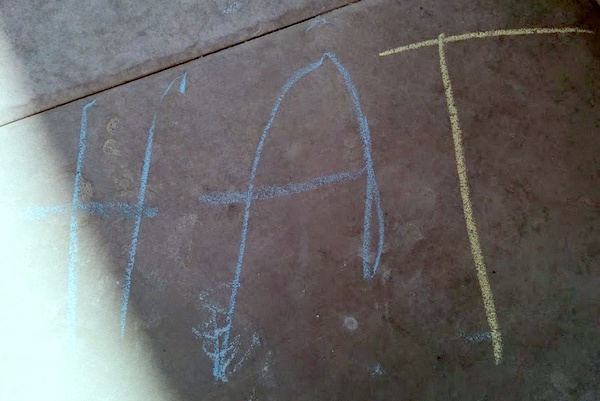We have been doing plenty of silly rhymes about ants and pants, and the ark in the park in the dark. We’ve also been grouping words in categories, such as lists of animals, and menus of food. Then we wrote this together and read it a couple of times.
When we reread it about five days later, I pointed to the letters in turn, insisting if she misread something, and I read THE each time it came up (it was new), but otherwise said nothing. The only word which gave her trouble was “squirrels”. The next time round she was word perfect. It helped that she already knew the basic story, and it helped to reread it several times. But what made the most difference was that she wrote it with me. She chose from various ways of expressing the story, and of course she decided which animals got to go into the ark. It shows how a kid’s implication changes everything, as she couldn’t normally read for meaning to that level.
Perfect timing for me to come across Célestin Freinet.
The basic tenets of his teaching are thus described:
- Pedagogy of work (pédagogie du travail): pupils were encouraged to learn by making products or providing services.
- Enquiry-based learning (tâtonnement expérimental): group-based trial and error work.
- Cooperative learning (travail coopératif): pupils were to co-operate in the production process.
- Centres of interest (complexe d’intérêt): the children’s interests and natural curiosity are starting points for a learning process
- The natural method (méthode naturelle): authentic learning by using real experiences of children.
- Democracy: children learn to take responsibility for their own work and for the whole community by using democratic self-government.
In fact, a lot of this ties in very closely with what Máire Mullarney believed in – Montessori, too, especially the concepts of work and exploration. Although there is a string of schools which follow Freinet’s pedagogical theory, I can see how teaching at home allows more liberty to follow it. Mullarney writes about how she taught maths as they baked cakes, multiplying the quantities for their large family. And how one of her sons learnt to read when he realised there were books about birds, his passion. I can’t speak for group-based work, as baby number 2 is only eight months old, but what I have done so far with my little Beiruti harmonises with a good few of these points, especially the centres of interest. If you set a time-lapse camera to watch the words that come and go on our terrace you’d know who we’d seen, where we’ve been and what we’ve had for dinner. I also like the idea of providing services. So now I’m out to brainstorm new ways to make learning relevant and fascinating – and helpful, why not.



